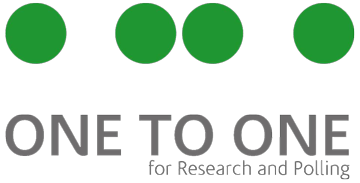The perception of companies as to the performance of public administration was the central element of the meeting-debate, organized on Wednesday December 5, 2018 at the Mövenpick Les Berges du Lac hotel by the Center for Young Leaders (CJD) and Konrad. Adenauer Stiftung, on the theme “Administrative reform: survey of SMEs”. The two organizations took advantage of the event to present the results of the 3rd edition of the annual survey conducted among Tunisian SMEs by the One to One for Research and Polling institute to measure the perception and satisfaction of Tunisian SMEs with regard to to public administrations.
Also present at this event was the new Minister for the Civil Service, modernization of the administration and public policies Kamel Morjane, the Minister for Development and Investment of International Cooperation Zied Laâdheri as well as the President of the Tunisian investment authority Khalil Laâbidi.
This survey was conducted with a representative sample of 501 SMEs installed in Tunisia, from October 22 to November 16, 2018 in the 24 governorates.
Through this survey, SME managers assess public administrations on six criteria: overall satisfaction, efficiency, quality of reception, speed of service, clarity of procedures and digitalization.
It shows that 77.2% of SMEs consider that public administration represents an obstacle to their development, knowing that 35.1% of them declare that their turnover has increased against 43.1% who say that ‘it has regressed. The top 3 of public administrations are: finance revenue (63.85 / 100), the employment office (Bnec) (63.81 / 100) and the Central Bank (63.79 / 100). The 3 public administrations classified last are: the Court of First Instance (RC), the customs offices and the municipalities. That said, the best development was made by the Administrative Court with + 9.04%.
Another alarming fact is that no administration has achieved a satisfactory score. The overall average obtained is 59.90 / 100 against 57.7% a year earlier, which remains far from the good performance (80 points / 100).
In terms of overall satisfaction, the best administration is that of Bnec, which has a satisfaction rating of 24.7%, followed by APII 23.1% and then Innorpi with 18.2%. At the bottom of the podium, we find the Customs with 11.3%, the CNSS of 12.5% and the tax control offices of 13.1%.
Another serious fact, 20.9% of SMEs admit that they have been incited to corruption during certain operations (public contracts, inspection and control, import and export and have access to a service). That said, the numbers are down significantly from a year ago.
Regarding what public administrations must do to improve their relationship with SMEs, the latter consider that first of all it is digitalization, then the quality of care and finally the transparency of procedures.
During his speech, Mr. Morjane felt that his presence, as well as that of Mr. Laâdheri, reflects the importance that the government gives to this type of event. He considered that this investigation reveals an important fact, that of trust between the administration and the citizen in general. He even said he was shocked by the fact that almost 8 out of 10 SMEs consider public administration to be an obstacle to their development.
The Minister of Public Service believes that many aspects of the public service need to be modernized. His personal position is that recruitments should no longer be made for life but as needed, although he is aware of the social problem that this will cause. According to him, it would be necessary to question the principles and above all to accept a dialogue between all the stakeholders, in particular unions and associations.
Zied Laâdheri said that there is a significant shortfall for businesses. Indeed, while companies around the world devote only 13% of their time to their administration, in Tunisia, this figure rises to 45%. The government is therefore working to simplify procedures: we are trying to ensure that no administration requests a document from another administration.
Khalil Laâbidi pointed out that according to the figures presented, the less administrations are digitalized the more they are badly perceived by companies. And it makes sense, the process being longer and tedious. He noted that the official’s hands are bound by regulations and the law. He took the opportunity to announce the establishment of an efficient information system in the Tunisian Investment Authority which will be generalized to other administrations including the APII and the APIA. This system will simplify life for investors and allow them to inform themselves, file their investment declaration and build a legal file remotely and without worrying about knowing the services concerned.
Public administration reform is considered by many to be the mother of reforms. Indeed, the administration is often singled out as being the cause of several ills, budgetary with the weight of the significant wage bill (14% of GDP and more than 600 thousand civil servants) but also for the heaviness and the complexity of its procedures. The service provided is below expectations and it is time to implement the necessary reforms.

